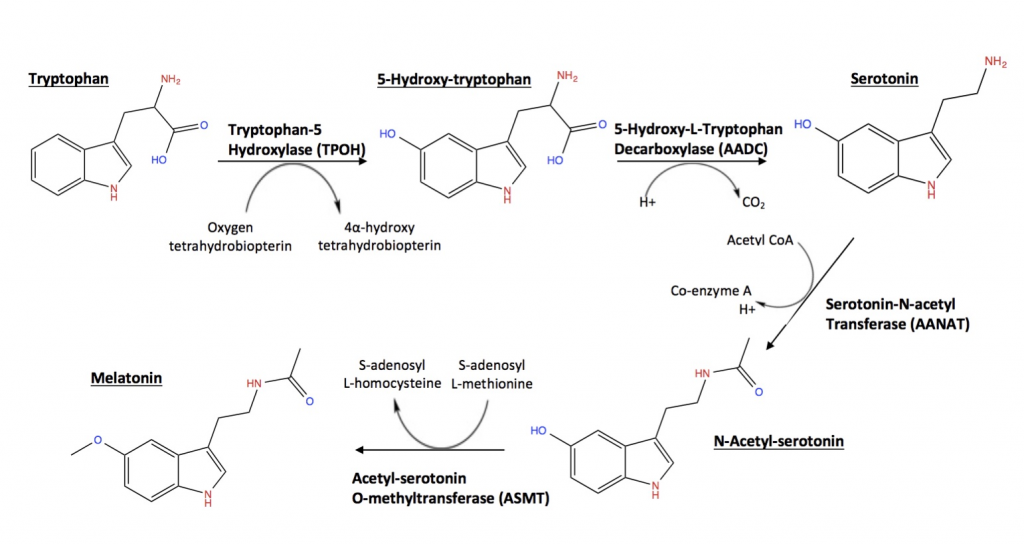What Is Tryptophan and How Does it Affect Sleep?
At Best Mattresses, we love debunking sleep myths.
One of the most common is that turkey makes you sleepy. Every Thanksgiving, we all continue spreading this myth, indulging its fantasy as we indulge our appetites.
But it’s actually not quite true. You may feel sleepy after Thanksgiving dinner, but it’s not because you ate a turkey stuffed with tryptophan.
So what exactly is tryptophan, then, and how does it affect your sleep? Read on and you can show everyone at the dinner table how smart you are this Thanksgiving.
What is tryptophan?
Tryptophan, technically L-tryptophan, is an amino acid. You’ll find it in turkey, but you’ll also find it in a large number of other foods, including:
- Meats like chicken, pork, and beef
- Dairy products like yogurt, milk, eggs, and cheese
- Seeds and nuts
- Beans and tofu
- Fish
How does tryptophan help you sleep?
When your body digests tryptophan, it turns it into a B vitamin called niacin. Niacin helps your body create serotonin, the “happy” neurotransmitter involved in regulating your mood, memory, appetite, and—key to this discussion—your sleep.
During the day, your serotonin levels help you stay awake and emotionally balanced. At night, your pineal gland begins to metabolize serotonin and turn it into melatonin. Melatonin, more popularly known as the “sleep hormone,” is what makes you feel sleepy. As your brain kicks off melatonin production, you start to feel sleepier and sleepier.
As you can see, it’s not exactly a straight shot between turkey and sleep. Rather, tryptophan is involved in a synthesis process that eventually leads to sleep. Its role is important enough, though, for it to be included as a common ingredient in natural sleep aids.

What’s more, it’s not all that easy for tryptophan to start synthesizing into serotonin in the first place. The foods you eat are comprised of a variety of amino acids, of which tryptophan is just one. When you digest these foods, all of these amino acids compete to reach your brain.
Fortunately, tryptophan has a secret weapon on its team: carbohydrates. When you eat carbohydrates, your body releases insulin. Conveniently, insulin removes all of the amino acids from your blood, except for one. You guessed it — tryptophan. With tryptophan dominating your bloodstream, it’s easy for it to make it to your brain and start increasing your serotonin levels.
All this time we thought it was the tryptophan in our turkey making us sleepy, when it really had more to do with that carbohydrate-rich stuffing inside.
Why does the tryptophan myth persist?
Turkey may be the scapegoat, but the reason we feel so sleepy on Thanksgiving is really due to mix of factors. Because we tend to eat turkey on Thanksgiving more than during other points of the year, it became a red herring for sleep-inducing foods. It’s because we ate turkey that we feel so sleepy, right? Not quite.
On Thanksgiving, we’ve spent all day (and perhaps the days before) cooking and preparing. That’s exhausting in itself. Add in the reveling with family and friends, the heavy meals, the festive (read: alcoholic) beverages, and you’ve created a recipe for slumber.
On top of all that, you load up on tryptophan with a heavy serving of turkey. Throw in stuffing and carbohydrate-rich desserts, and you’ve paved the way for tryptophan to make a beeline for your brain and tell it it’s time for sleep.
If you ever want to fall asleep faster, you don’t have to go out and buy a turkey. A light snack made of healthy carbohydrates will do the trick just fine, and be a lot easier on your digestive system to boot.